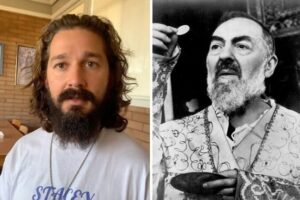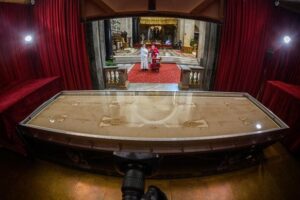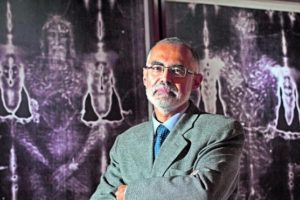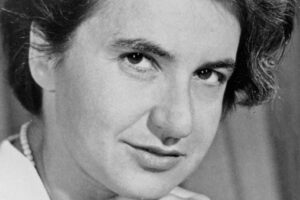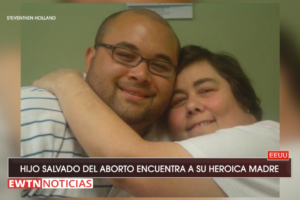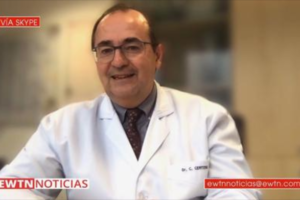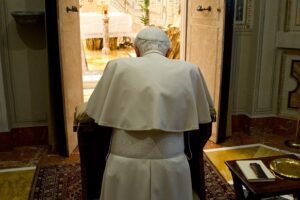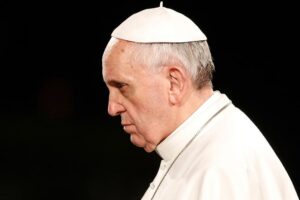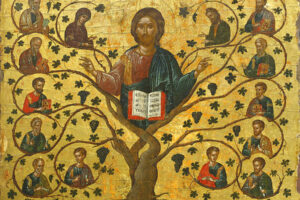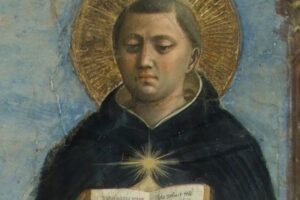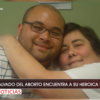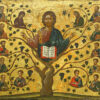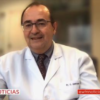George Weigel: “The Catholic Church in the United States is the safest environment for children in the country. Period.” – Caught your attention, eh?
“The Catholic Church in the United States is the safest environment for children in the country. Period.”
So says George Weigel, theologian, historian, biographer of Pope John Paul II and media commentator representing what is perceived as being the ‘orthodox’ voice of today’s Roman Catholic Church. Weigel has never been accused of dodging the difficult question facing the Roman Catholic in these challenging times and he didn’t disappoint when he recently agreed to share his thoughts on some of the challenges facing contemporary Catholic values and practice.
(Note from Fr. Tim: In the interest of transparency, let me state up front that I’ve been privileged to share a friendship that stretches back over 20 years with George. We’ve spent many a summers evening together on the Quebec side of the Ottawa Valley, usually in the company of our mutual friend, Fr. Richard John Neuhaus, (R.I.P). While those conversations maintain the privacy that friends share with each other, his answers today were very much ‘on the record’. I thank him for this kindness.)
—————
TM: From the many books and articles you’ve published, (putting to the side ‘Letters to A Young Catholic’) of which work are you most proud of from the perspective of explaining or developing theological issues in a manner that the average Catholic can understand? In your opinion, why is it that the Church has been so ineffective in explaining its theology in the ‘lingua franca’ of today?
GW: “I like to think that ‘Witness to Hope’ (1999), ‘The End and the Beginning’ (2010), and ‘The Truth of Catholicism’ (2001) all make the Church’s teaching accessible to anyone willing to work through an argument. I do think we need more substantive preaching: preaching that breaks open the Scripture in order to unpack the truths the Church proposes. Benedict XVI is in fact a master preacher and catechist, and his Wednesday audience addresses are quite accessible.”
TM: Both Pope John Paul I & II were able to communicate theological teachings through the use of metaphor and analogy which spoke directly to Catholics hearts. The current Holy Father has not yet seemed to be able to connect with Catholics on that same emotional level. Is this due to the personality of Pope Benedict or is it reflective of the Church’s difficulty in knowing how to craft an effective communications strategy?
GW: “If he seems less connected, it may well be because the global media simply decided in 2005 that he wasn’t going to be much of a story and have followed their own script ever since. He ‘connected’ brilliantly in the U.K. and Spain last year, and yet got very little North American media attention. It may well be because the global media simply decided in 2005 that he wasn’t going to be much of a story and have followed their own script ever since.”
TM: Do you see your role as a ‘lay theologian’ as an instrument to present Catholic teachings in a more understandable form? Should the Church not be more concerned with the fact that it is not effectively promoting the positions of faith?
GW: “I’ve never been sure what a «lay theologian» (as distinguished from any other sort of theologian) is. Priests, bishops, and the unordained among the theologically literate ought to be able to «translate» the Church’;s teachings into a vocabulary that can be grasped by non-specialists (meaning 98% of the Church and 100% of «the world»).”
TM: ‘Witness to Hope’, your biography of Pope John Paul II is the most comprehensive account of his entire life on the market today. You’ve book-ended this great work with ‘The Final Revolution’ (1992), an exposition of his role in the collapse of European Communism, and with ‘The End and The Beginning’ which sums up his final years and offers a synopsis of the themes of his pontificate. Given the extensive research that the first two works demanded, were you surprised by any information you discovered as you researched your latest book?
GW: ‘The End and the Beginning’ is the sequel to and completion of the story I told in ‘Witness to Hope’. The surprise between the two books was the previously top-secret communist foreign ministry and intelligence agency materials I was given by scholars working in archives in Warsaw, Budapest, and Berlin. That allowed me to revisit the story of John Paul II vs. communism in a dramatic way, for the communists were at war with this man for forty years.
TM: Fr. Richard John Neuhaus was a dear friend to both of us. In the latter years of his life, he wrote often of the ‘Long Lent’ the church was enduring in the wake of the Bishops mishandling of the sex abuse cases in both Canada and the USA. Do you see an end to this period of purification and penance any time soon?
GW: While I certainly understand and share the dismay of people who have left the Church because of the sin and crime of sexual abuse and the failures of bishops to come to grips with this, I have to say that the failures of the people of the Church, including its ordained leaders, are no reason to turn one’s back on the Church’s Lord, who still lives in the Church. He, too, has been wounded anew by the sins ans crimes of his ministers; but He does not abandon us, and we should not abandon Him, or the Church which is his Body.
There have been important and far-reaching reforms put in place in seminaries and in dioceses that have, in the United States, made the Catholic Church the country’s safest environment for children and young people. I expect that is true in Canada as well.
This past Saturday night, I spoke to almost a thousand Catholic university students here in Washington. They certainly didn’t seem to think that the Church had lost its credibility or its moral authority.
TM: Recent news out of places like Philadelphia seems to demonstrate that some Bishops are still not getting with the program as regards the sex abuse scandals . Here in Canada we had the revelation that after adopting their protocol, a bishop wrote to Rome to try to hide an offender in the Vatican. How can the Church speak authority on these other moral issues when they have been shown to be delinquent in implementing a publicly announced policy to protect innocents from predator priests?
GW: I’d be far more angry at the Irish hierarchy than at Philadelphia, where there are a lot of ambiguities. As for those thousand kids, many of them were heathens before someone unapologetically offered them friendship with Christ. That’s what the Church needs to do. Let me repeat: the Catholic Church in the United States is the safest environment for children in the country. Period.
Now, having said that, I would also say that a grave problem for the twenty-first century Church is to devise a process to remove malfeasant or incompetent bishops when they have manifestly lost the munus regendi, which I would translate here as the capacity to give effective evangelical leadership. That’s not as easy as it might sound, because you don’t want to hold bishops hostage to, say, the Philadelphia Inquirer or the Boston Globe, but we all know that some episcopal appointments fail, and others should never have been made, and we need a coherent, fair process to address those cases.
TM: In ‘Faith, Reason, and the War Against Jihadism’, you expressed concern about the dangers of a rising tide of militant Islamism spreading throughout Christian Europe. This concern was expressed both in terms of the respective demographic trends, (Christians declining/Muslims ascending) and in terms of Islamist terrorist attacks from groups like al Qaeda. While it seems that the experiences in western Europe evidences to the truth of these phenomena, do you think that North American societies are going to face the same tension and crises in the near future?
GW: Not in the same way, because the demographics are quite different, Still, the radicalization of elements of the Muslim population in the greater Montreal area, which has led to ugly incidents of anti-Semitism, is surely a cause for worry. So is the political correctness that precludes discussion of these problems, and similar ones in the United States.
TM: What’s so different about the demographics here than in Europe? North America seems to follow most European trends. In Canada we see this happening first in Quebec and then eventually spreading through the rest of the country. Are our falling birthrates here not indicative that this same trend has taken root here from across the Atlantic?
GW: “Canada is Europe transplanted, demographically; the U.S. isn’t. We have an above-replacement level birth rate and our immigrants are from the same civilizational orbit. The Muslims shouting anti-Semiic slogans in Montreal are not from the same civilizational orbit, and the failure to recognize that (and help them assimilate to the way we do things in an open society) is a function of a lot of p.c. nonsense. We’ve got what might be termed a parallel problem with some Hispanic immigrants, but the civilizational «gap» isn’t as great.”


